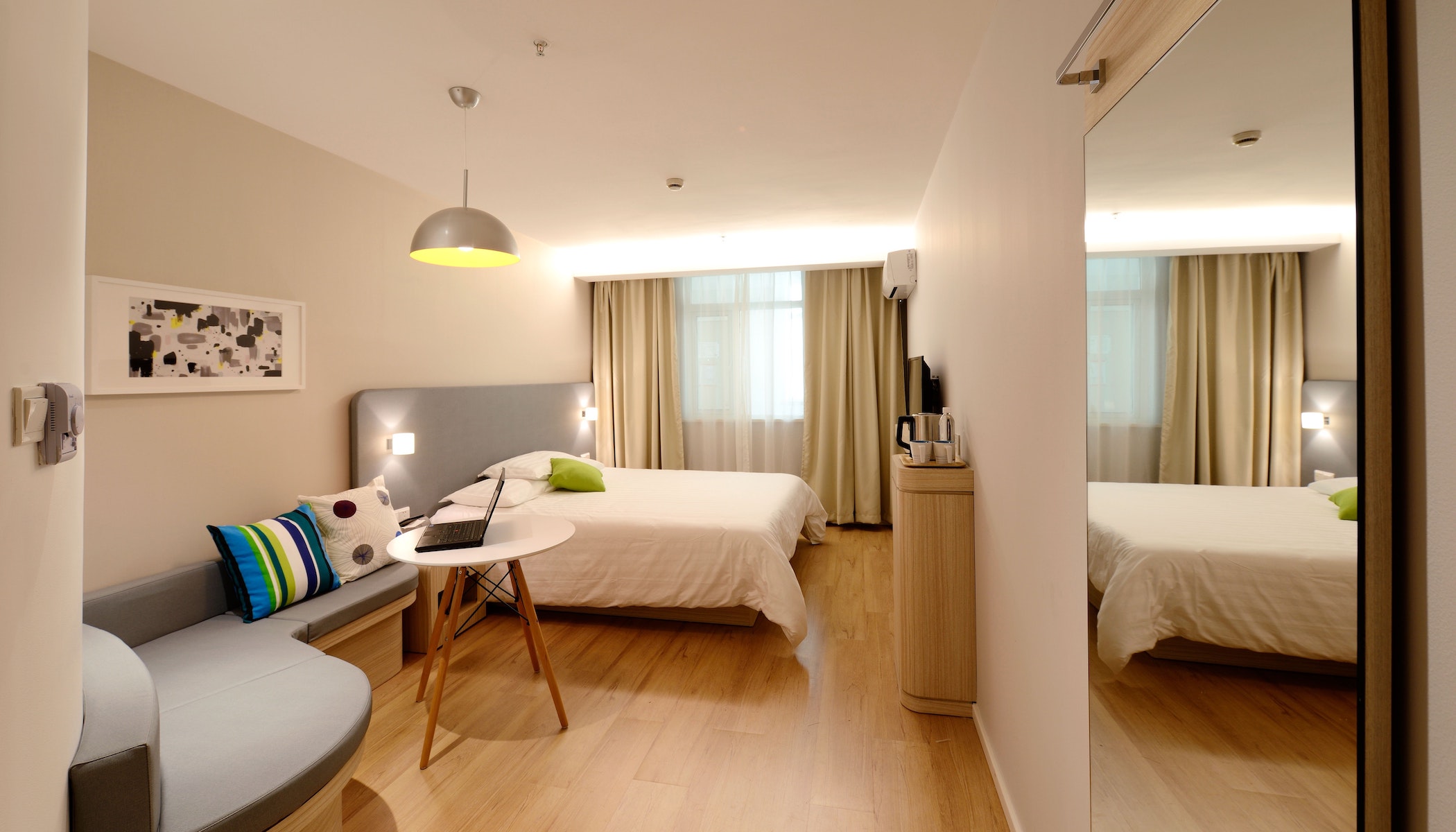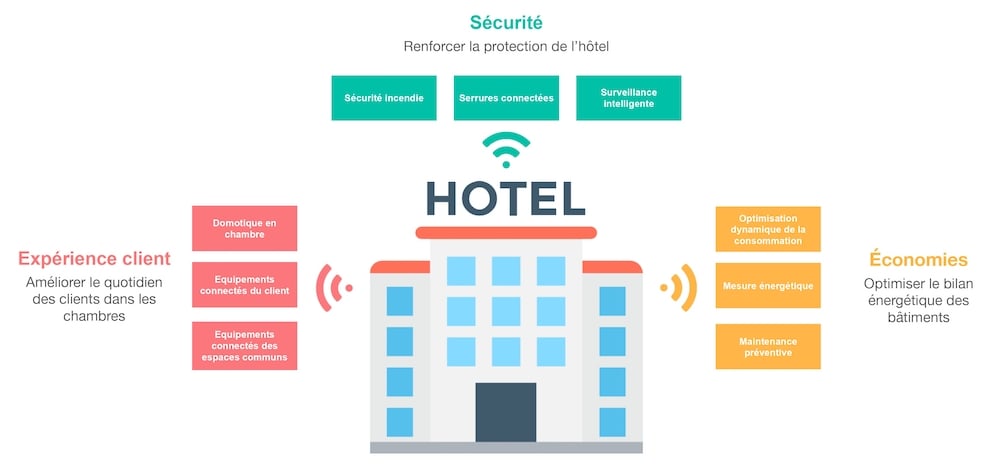
The Internet of Things (IoT) is increasingly present in the home and is among the major technological challenges for the hotel and residential industry in the years to come. Among the main benefits of IoT adoption are the enhancement of the guest experience and the optimisation of operating expenses, both of which are key objectives for hoteliers.
It is difficult to give a precise definition of the Internet of Things as it is such a vast concept. Oracle.com defines it as the network of physical objects- "things":
"The Internet of Things (IoT) describes the network of physical objects—“things”—that are embedded with sensors, software, and other technologies for the purpose of connecting and exchanging data with other devices and systems over the internet." (Oracle)
SPG Controls breaks down the IoT into 5 elements: objects (physical devices), network (connectivity), data, user interface and operating applications.
We will focus here mainly on applications to understand the concrete interest of IoT for hotels.
One of the best known applications of the IoT is home automation in the context of the Smart Home. Thanks to connectivity, it is possible to remotely control most of the installations in the home (lighting, heating, shutters, video surveillance, etc.) and to create automation scenarios with ease to increase comfort, promote entertainment and generate savings.

The smart home market has been growing for several years and is expected to mature quickly. The perceived benefits of connected home objects are growing each year. A smarter home can improve ones control over how the house operates, increase its safety and accessibility, as well as lead to savings in energy and upkeep costs.
Hotel professionals are interested in this "Smart" philosophy which, once adapted to a collective environment, meets four concrete needs for residents and facility managers:
The IoT in hotels and residences is not only the development of the "connected room", it is also the development of many "business" functions that can be improved.

Thanks to IoT, hotels can allow guests to connect all their personal equipment (smartphone, connected speaker, PC, etc.) to the WiFi network to enjoy it "like at home".
By equipping the room with connected thermostats, lamps and blinds, the customer can control them remotely via their smartphone or via automated scenarios.
Communal areas can also benefit from the IoT, whether it's providing customers with useful information on screens through digital signage or letting them know if the treadmill in the gym is free.
With IoT, the hotel industry will be able to develop intelligent surveillance and use equipment such as connected cameras, motion and object detectors, intrusion detectors, etc. This also applies to fire safety via connected smoke detectors allowing a two-stage alarm to be triggered (manager for verification then general alarm).
Access supervision can also benefit from the development of IoT in the hotel industry, thanks in particular to connected locks which will allow centralised and easier management of access. They will also enable the detection of door openings.
Optimising energy consumption is a major environmental and financial challenge for hoteliers. Thanks to new IoT devices, this is now possible. The new systems make it possible to take measurements and trigger actions based on them in order to optimise energy expenditure and generate savings. Along with predictive maintenance, this is one of the promises of Smart Buildings!
Integrating IoT into your establishment does not only mean equipping yourself with the various connected objects mentioned above! Indeed, the strength of the IoT lies in the interconnection of the various connected objects and the communication between them. Thus, a suitable network infrastructure is essential to supply the IoT environment and allow it to function properly. It is of course possible to deploy dedicated IoT equipment but there is a more interesting alternative.
Almost all hotels and residences have a WiFi infrastructure. Wireless equipment manufacturers specialising in WiFi have developed IoT-Ready ranges that allow the existing LAN network to be used for IoT in parallel with WiFi. These access points are compatible with the main market standards: Zigbee, LoRa, BLE, etc. This makes it possible to couple the hotel's WiFi infrastructure with the IoT infrastructure, with this mutualisation allowing savings on material costs (particularly cabling and switching), deployment and maintenance.
These Stories on Hotel Industry
A leader in innovative WiFi and Fibre connectivity solutions since 2002, Wifirst is trusted by thousands of customers across Europe to provide high-quality, robust networks.